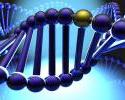Children with Attention Deficit Hyperactivity Disorder (ADHD) are more likely to have a binge eating disorder, according to the John Hopkins Children’s Center.
ADHD is a psychiatric disorder that describes a tendency toward hyperactivity. Children who suffer from the condition usually have poor social skills, experience moodiness and can often have difficulty with fidgeting. Though previous research has suggested that kids with ADHD who eat a well-balanced diet have higher brain functioning, this research suggests that ADHD is even more influenced by eating habits.
The study offered a link between the disorder and loss of control eating syndrome (LOC-ES). However, the study also offered a potential treatment for both disorders.
Researchers studied 79 children between the ages of 8 and 14 in the Baltimore area. The noted the link between hyperactivity and loss of control over appetite, which includes a similar diagnostic criteria to binge eating disorder. Both conditions are marked by an inability to stop eating.
In each test, participants were asked to press a key as soon as a green spaceship appeared on the screen. Children with more incorrect responses were deemed to have less impulse control. Researchers concluded that the odds of having LOC-ES were 12 times higher for children with ADHD compared to those without the disorder.
It’s possible that children with ADHD and LOC-ES may also have a more severe form of ADHD marked by impulsive behavior that manifests in their eating habits. Alternatively, children with the disorders may have another underlying and genetic risk factor.
The study was originally published in the International Journal of Eating Disorders.
Source: NDTV Food








